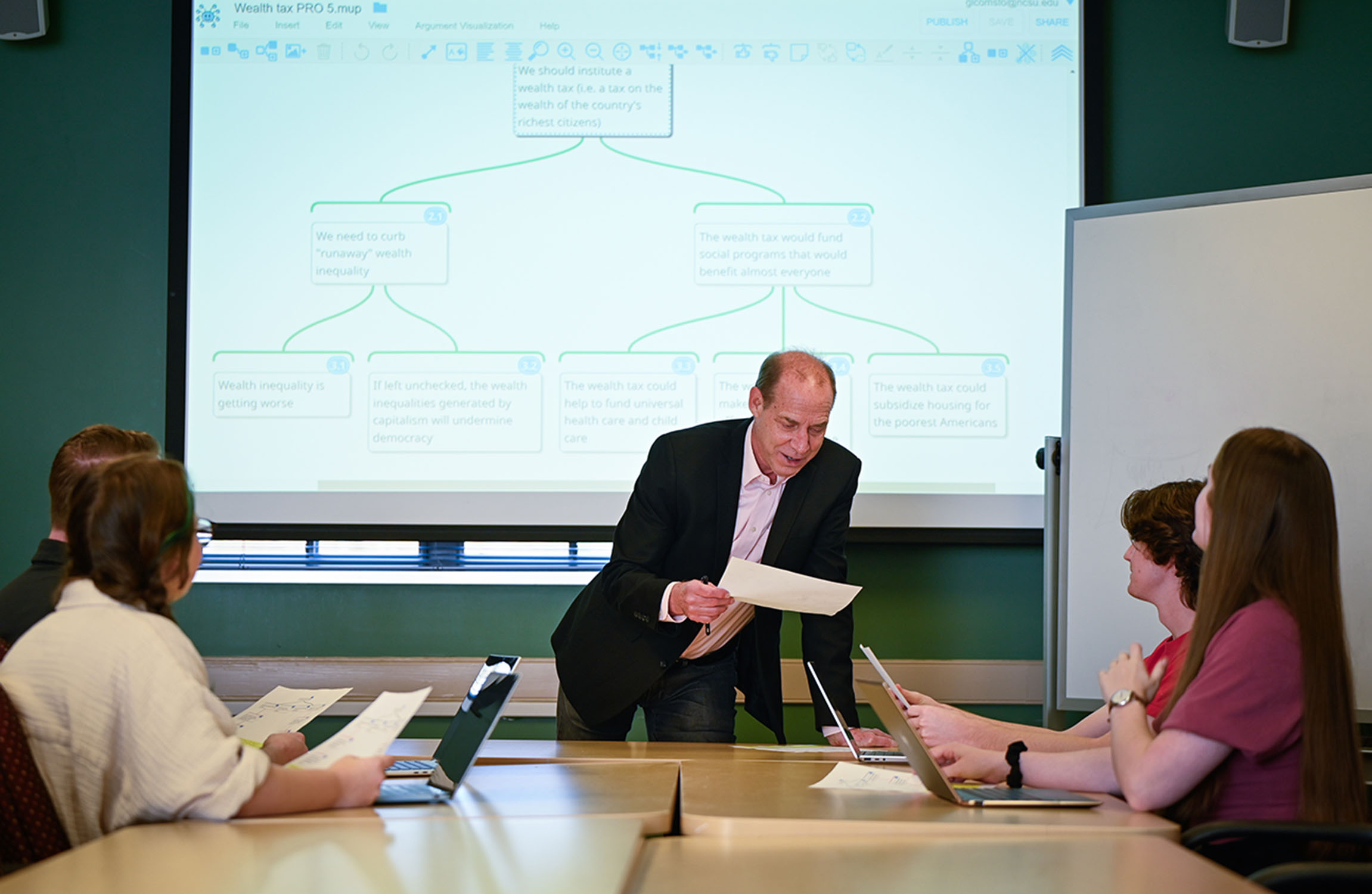Young Learners Get HELPS
Carrie McGaha
CHASS Communications Intern“Today my family is going to have a yard sale. At first, I thought a yard sale meant that people were going to buy our front yard.”
They are simple sentences, but chances that a fourth-grader in the United States can make sense of them are barely above 50/50.
Assistant Professor of Psychology John Begeny has figured out a method to improve children’s reading fluency—the ability to read with speed, accuracy, and proper expression—that is key to unlocking literacy. And he’s set up a nonprofit to get his approach out of the lab and into the classroom. In 2010 alone, some 5,000 teachers from across the country have downloaded Begeny’s free educational materials.
Reading researchers and educators generally agree that the essential components of early elementary reading instruction should target phonics, phonemic awareness, fluency, comprehension, and vocabulary. Begeny believes fluency has taken a back seat in school curricula. “Students are unable to focus on the words they are reading unless they can read fluently,” he said. “Fluency is essential to becoming a proficient reader.” A recent, nationally representative study of 1,779 fourth-grade students suggests that 40 percent of U.S. students are non-fluent readers. Begeny has researched reading fluency since 2003. His findings show that as students improve reading fluency, they are better able to focus on and improve other important reading skills, including comprehension.
HELPS can help
Begeny created the Helping Early Literacy with Practice Strategies (HELPS) program to help students struggling to read. HELPS combines eight strategies for improving fluency, including reading out loud, listening to skilled readers, goal setting, and systematic praise. He set up the nonprofit HELPS Education Fund to give teachers, teaching assistants, librarians, and even parents free access to his materials. Begeny says that spending just 10 minutes two to three times a week is enough to begin to improve a child’s reading fluency.
Begeny continues to monitor the impact of the HELPS approach. Compared with the reading assessment scores of a control group, participating HELPS students’ reading scores are showing a marked improvement. “Reading fluency does more than improve reading comprehension,” he said. “Fluent readers are more likely to choose to read. When you’re fluent in any skill, whether it’s a sport or an instrument, you’re more likely to want to do it.”
Teachers from North Carolina to California are praising the program. “Teachers tell us that HELPS is increasing their students’ reading fluency, and some have even sent me their class’ scores and gains,” Begeny said. “Most of them are finding out about HELPS by word of mouth. If a teacher finds something that works, they share it with others.”
Teaching teachers
In addition to helping elementary school students, Begeny is working to train the next generation of teachers. In his graduate and undergraduate classes, Begeny regularly supplements traditional coursework with applied experiences in and around Raleigh. His students visit schools and community-based after-school programs to get hands-on experience working with children, parents, teachers, and community-based educators.
More than 80 NC State students with strong interests in education and working with children, teachers, and families have been a part of HELPS since its start. “Students are researching teaching methods, serving students, and partnering with local communities when they volunteer with HELPS,” Begeny said. “They’re also taking on leadership roles and learning about important issues of social justice as it relates to educational equity and diversity.” Several undergraduates have been involved with the literacy program for more than two years. Others have co-authored professional presentations and publications.
Begeny and his students are currently researching and developing instructional materials for small groups of students and adapting the one-on-one HELPS materials to Spanish to connect with Latin American countries and English language learners.
Begeny hopes as the HELPS program becomes more broadly used, and reading fluency improves, so will students’ chances for success.
- Categories:


